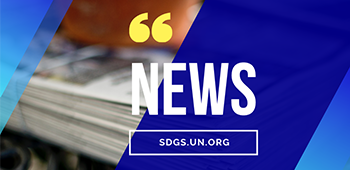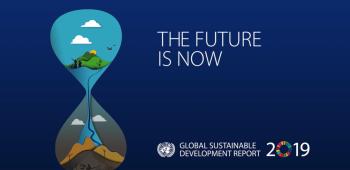Science
Description
The 2030 Agenda for Sustainable Development describes in paragraph 70 the composition and task of the Technology Facilitation Mechanism, established by the Addis Ababa Action Agenda and aimed at supporting the Sustainable Development Goals. More specifically, paragraph 70 of the 2030 Agenda reads: “the Technology Facilitation Mechanism will be based on a multi-stakeholder collaboration between Member States, civil society, private sector, scientific community, United Nations entities and other stakeholders and will be composed of: a United Nations Interagency Task Team on Science, Technology and Innovation for the SDGs, a collaborative Multistakeholder Forum on Science, Technology and Innovation for the SDGs and an on-line platform.”
Sustainable Development Goals Targets 17.6 and 17.8 respectively aim to “Enhance North-South, South-South and triangular regional and international cooperation on and access to science, technology and innovation and enhance knowledge sharing on mutually agreed terms, including through improved coordination among existing mechanisms, in particular at the United Nations level, and through a global technology facilitation mechanism“ and to “fully operationalize the technology bank and science, technology and innovation capacity-building mechanism for least developed countries by 2017 and enhance the use of enabling technology, in particular information and communications technology”.
Prior to the 2030 Agenda, the Rio+20 outcome document The Future We Want called for a Global Sustainable Development Report to bring together dispersed information and existing assessments, and to strengthen the science–policy interface at the High-level Political Forum on sustainable development (HLPF), through Paragraph 85.k.
As recalled by the Prototype Global Sustainable Report, published in 2014, the United Nations Secretary-General tasked, following Rio+20, the Division for Sustainable Development of the Department of Economic and Social Affairs to undertake “in-depth analysis and evaluation of trends and scientific analysis in the implementation of sustainable development, including lessons learned, best practices and new challenges, and cross-sectoral analysis of sustainable development issues”.
On that occasion, it was decided to produce a “prototype” report to facilitate dialogue between scientists and decision-makers and to establish for this purpose a United Nations system task team.
Decisions related to science were also taken by the World Summit on Sustainable Development held in 2002, by the Commission on Sustainable Development at its third (1995), fifth (1997) and sixth (1998) sessions and by the United Nations General Assembly at its Special Session to review the implementation of Agenda 21 (1997).
The Plan of Implementation adopted by WSSD underlined the importance of science-based decision-making, inter alia, by: integrating scientists' advice into decision-making bodies; partnerships between scientific, public and private institutions; improved collaboration between natural and social scientists, and establishing regular channels for requesting and receiving advice between scientists and policy makers; making greater use of integrated scientific assessments, risk assessments and interdisciplinary and intersectoral approaches; increasing the beneficial use of local and indigenous knowledge. Strengthening and creating centres for sustainable development in developing countries were encouraged, as well as networking with and between centres of scientific excellence and between science and education for sustainable development. Tools for science-based decision-making and sharing of knowledge and experiences to be promoted include: information and communication technologies, ground-based observations, satellite technologies, and national statistical services capable of providing sound data, assessment models, accurate databases and integrated information systems. The Plan also urged support for publicly funded research and development entities to engage in strategic alliances for the purpose of enhancing research and development.
The special session of the General Assembly held in June 1997 to review progress five years after UNCED stressed the need for authoritative scientific evidence for assessing environmental conditions and changes, which would facilitate international consensus-building. Scientific cooperation was to be promoted across disciplines for that purpose, and building scientific and technological capacity in developing countries was extremely important in that regard.
Science for sustainable development is the focus of Chapter 35 of Agenda 21. It calls for:
- strengthening the scientific basis for sustainable management;
- enhancing scientific understanding;
- improving long-term scientific assessment; and
- building up scientific capacity and capability.



